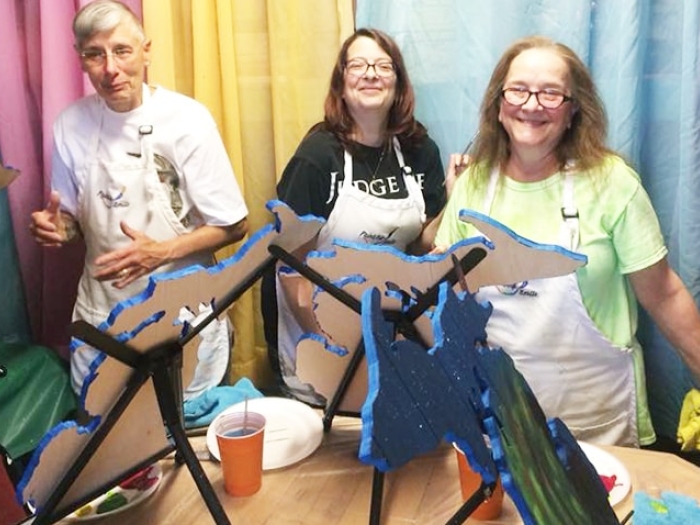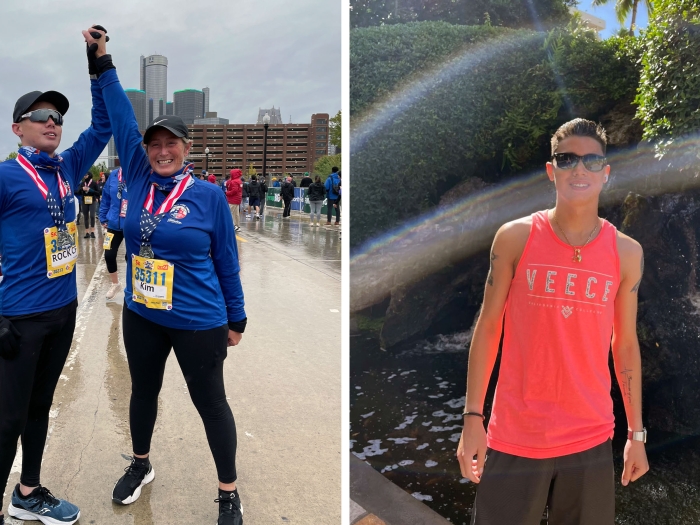At the U-M Pulmonary Rehabilitation Clinic, a weekly musical group is a breath of fresh air.
7:00 AM
Author |
For Pat Rubadeau, the University of Michigan Pulmonary Rehabilitation Harmonica Group allows her to not only work on her breathing, but also mingle with friends.
"Playing the harmonica gets you working your muscles in your chest and that just helps you breathe," she says. "People come here, they have a good time, they get out of the house, they work their lungs a little bit, and it's just social."
Rubadeau leads the group of around 10 to 15 patients, with conditions such as chronic obstructive pulmonary disease (COPD), pulmonary fibrosis and pulmonary hypertension, who meet every Tuesday morning at the U-M Pulmonary Rehabilitation Clinic to play a variety of songs, including festive holiday tunes, on their harmonicas. Anyone with a lung condition can join.
The group serves as a support system, too.
"It's socially very beneficial for the patients," says Melissa McInroy, exercise physiologist at the U-M Pulmonary Rehabilitation Program. "It's a group of people they can get together with and talk about their lung conditions, how things are going in life and for a lot of them, it's one of their biggest supports."
Those interested in joining the harmonica club should call the Pulmonary Rehabilitation Program at 734-998-8723 and ask to be referred to the club's director. Visit the program online for more information.

Explore a variety of health care news & stories by visiting the Health Lab home page for more articles.

Department of Communication at Michigan Medicine
Want top health & research news weekly? Sign up for Health Lab’s newsletters today!





